Creating an Entrepreneurial Ecosystem
As the adrenaline-soaked opening of “Eye of the Tiger” blared overhead, several dozen spectators were glued to their smartphones at McDavid Studios in downtown Fort Worth. Two local entrepreneurs had just made their three-minute pitches to a live audience, and the attendees were voting on who would be eliminated. $10,000 dollars in start-up funding was up for grabs at Accelerate DFW: Pitch in the Round, part of the second annual Global Entrepreneurship Week Fort Worth.
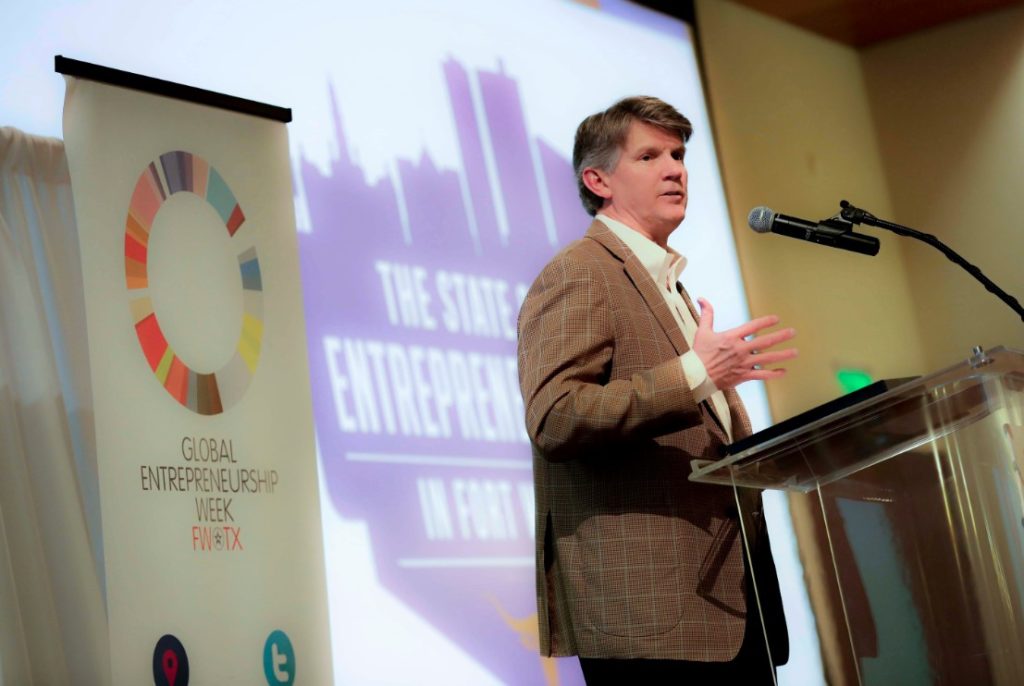
Just minutes before, I chatted with one of the event organizers, Walker Lutringer.
“I moved here from the West Coast,” he said. He noticed that the business pitches here “were not up to snuff. We want to give Fort Worth insight into what a good pitch looks like. The point is to pitch and articulately convey what your company is doing without support. No props. If they want to compete for financing, they need to step it up. Entrepreneurs should be comfortable being uncomfortable.”
Halfway through the ’80s rock song, the music faded, and Lutringer made the big announcement.
“The winner is Ampcare,” he announced to subsequent applause.
The competition continued unabated. Two more contestants were brought to a central stage that was surrounded by viewers. After both innovators pitched their ideas, the voters chose a winner to continue on.
The aim of Accelerate DFW and the dozens of innovation-minded events scheduled as part of Global Entrepreneurship Week Fort Worth is to create an “ecosystem” where local innovators can meet, share ideas, and inspire the next of entrepreneurs.

Spearheading that effort and many others like it is Cameron Cushman, Director of Innovation Ecosystems at UNT Health Science Center (UNTHSC). Cushman has the ambitious task of supporting Fort Worth’s pioneering innovators and inventors through several means. While UNTHSC is best known as a medical school that trains health care providers and public health professionals, supporting local entrepreneurs (specifically those in the field of medicine and biotech) has been a priority for UNTHSC president Michael Williams, Cushman said.
The Innovation Ecosystem team that Cushman leads has been at work for two years.
Innovators “don’t exist in a vacuum,” he said. “If we as the community can help these individuals grow, more jobs will be made, and more innovations will happen.”
The doctors, pharmacists, and other healthcare professionals who graduate from UNTHSC are generally not taught courses on entrepreneurship, and yet those same individuals are keenly positioned to develop and patent diagnostic methods, medicines, and biotechnology innovations that are potentially worth millions (or billions) in revenue, he added.
To ensure that those pioneering developments originate in Fort Worth, UNTHSC offers rentable lab space that gives entrepreneurs access to advanced biotech equipment. If a researcher believes that he or she has found a new cure or technology, members of the Innovation Ecosystem team can determine if the discovery warrants legal protections such as a patent.
One of Cushman’s newest projects may have the most far-reaching impacts within Fort Worth’s innovator community. The podcast Innovate Fort Worth just wrapped up its second season. Each 20-minute episode features a local innovator who is trailblazing new possibilities for Fort Worth and North Texas. The episodes are recorded on the fourth floor of UNTHSC’s Gib Lewis Library, not far from classrooms full of future physicians and medical researchers.
Many of our students “know nothing about business or capital,” Cushman said. “Our role is to bring some of those resources to bear, to help Fort Worth in general as an economic development strategy. As Fort Worth has grown, our entrepreneurial ecosystem has not kept up. We are trying to close that gap.”
The first season of the podcast opened with Marco Johnson, founder of Sparkyard. The new venture connects nonprofit services to entrepreneurs and business owners. Sparkyard is supported by UNTHSC, TCU, and the city of Fort Worth and provides services like business planning, financing guidance, marketing advice, and help with permitting/licensing.
“Fort Worth is growing,” Johnson said on the podcast. “We recently became the 13th largest city in the country. We’re also going through growing pains. It’s no longer adequate to rely on our identity as ‘Cowboys and Culture.’ We have a diverse population. Who are we? This initiative helps us understand who we are and what we’re trying to be.”
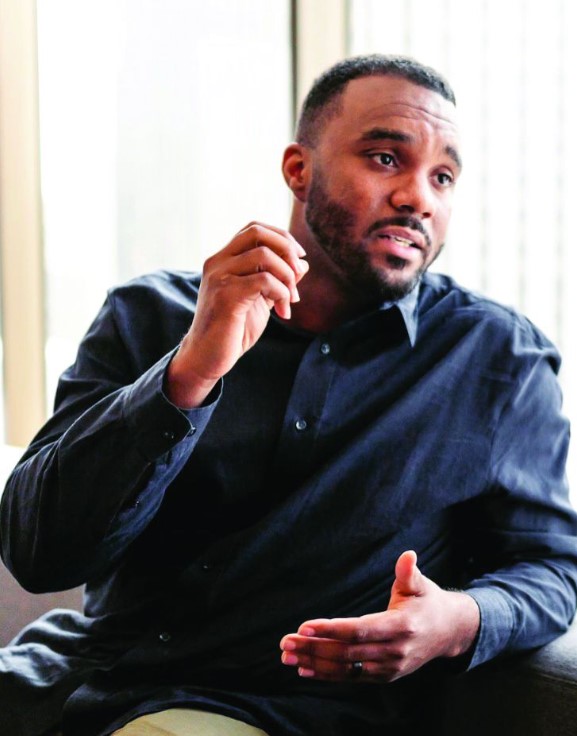
Photo courtesy of Cam Sadler
The second episode featured Cam Sadler, a former Dunbar High School teacher who cashed his retirement plan to launch Newcraft, the online recruiting platform for software engineers. For episode 2, Cushman queried Sadler on his impression of Fort Worth as an ecosystem for entrepreneurs.
“I think it has great potential,” Sadler said. “More than a lot of places, including Silicon Valley. Fort Worth is in a position to be one of the best [entrepreneurial] ecosystems in the world. My other impression is that we have gone through an identity crisis. We need a [large company] to solidify our identity” by headquartering here.
Veena Somareddy was featured in episode 4. Somareddy partnered with Bruce Conti to renovate a local furniture store into a state-of-the-art rehab center that uses virtual reality to rehabilitate people with brain and spinal injuries. When asked about the trials of being a female tech entrepreneur, Somareddy said, “As a female entrepreneur, you’re having to constantly try to prove yourself… having these programs are helping female entrepreneurs.”
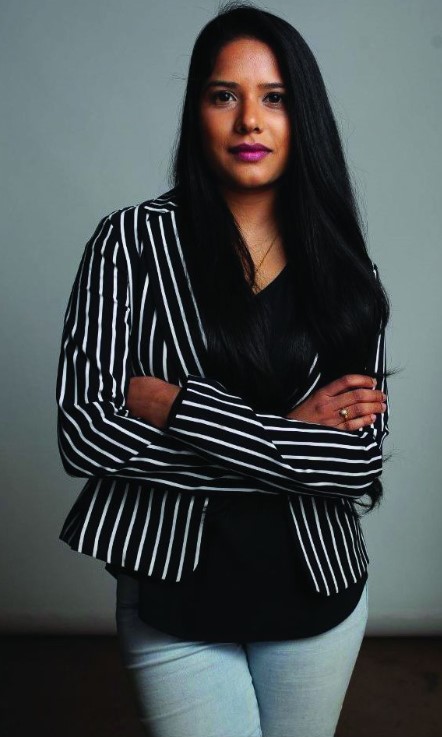
Photo credit: Skylar Fike
Fort Worth has a long way to go in providing a sustainable ecosystem for innovators and entrepreneurs, Cushman said. He pointed to the Wework space we were chatting in is one such step in the right direction.
“Five years ago, Fort Worth didn’t have co-working space,” he said. “Now we do.”
Innovators, he said, need spaces where they can meet, mingle, and share ideas.
Lockheed Martin’s Center for Innovation in Orlando, Florida, is one such example of what Fort Worth is still missing. The high-end laboratory features labs, research centers, and engineering facilities that are optimized for collaborative experimentation and analysis.
With so many corporate headquarters in Fort Worth, Cushman sees no reason why private business investment can’t play a more active role in cultivating the next generation of innovators.
“Fort Worth is a late adopter town,” he said, referring to our city’s penchant for adopting trends like craft beer and Aperol Spritz years or even decades after other U.S. cities. “Fort Worth has the capability, but we’re not leveraging it.”
Cowtown continues to have many advantages over other large cities, though. As areas and cities like Silicon Valley and Austin become saturated in startups, Fort Worth offers an opportunity to build a business under the radar. Fort Worth’s new businesses often adopt our city’s frugal and low-key culture.
“People are making great businesses without financing,” he said. “I know four or five [new ventures] that are boot-strapped. It takes longer, but [they don’t] incur debt.”
He pointed toward one growing business as an example. Exact Diagnostics provides products and services to laboratories and manufacturers. The nearly four-year-old business ships to 30 countries and has 25 employees. Even with steady growth, the company benefits from working in the labs of UNTHSC.
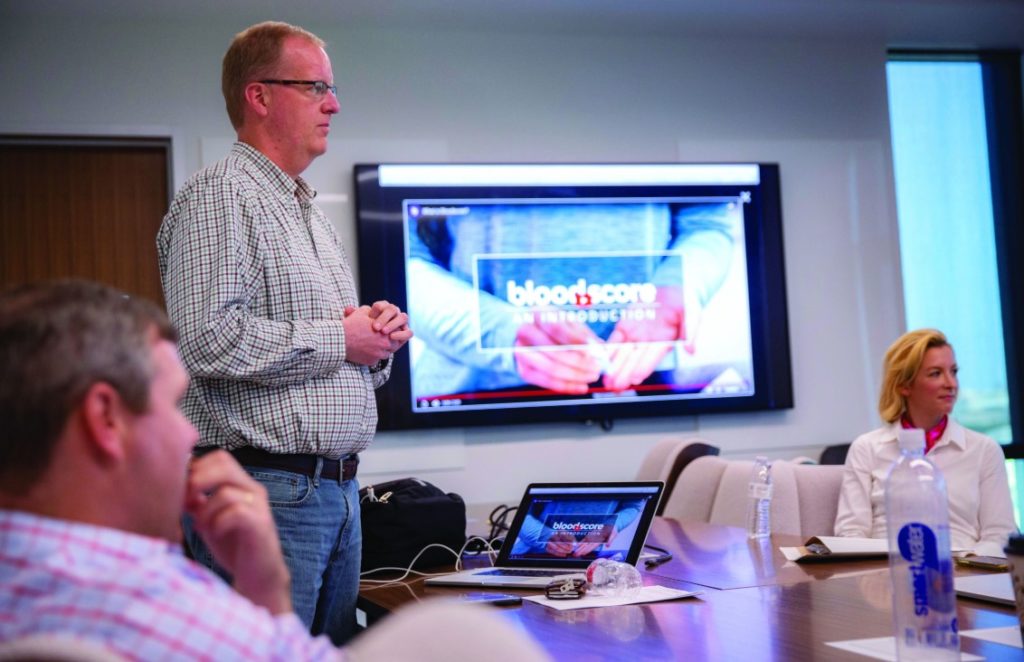
An entrepreneurial ecosystem “needs smart people who want to take a risk and start a company,” he continued. “I recently spoke with [MELT founder] Kari Crow. She said she sells ice cream, but she’s really in the business of selling happiness. We are doing this podcast because no one is telling the stories of innovation in Fort Worth. These people are creating jobs, but they’re not in our public consciousness. Entrepreneurship has long been fuel for the American economy. Hopefully, [this podcast] will encourage other people to take that jump, to work on that thing they’ve been tinkering with and take it to market.”
At its core, entrepreneurship is about problem-solving, he said. If anyone wants to start a new business, Cushman recommends “falling in love with the problem.” Not the solution. With climate fluctuations, infectious diseases, hunger and other ills afflicting humanity, there’s no shortage of problems that need solving. The solutions that move our society forward have traditionally come from individuals who have a supportive network of colleagues and resources.
“The problem solvers of the future will not be big business or government,” Cushman said. “It will be innovators and entrepreneurs. They need a lot. They need luck, a good team, a co-founder — all of those things. At the end of the day, it will be those people who will solve the problems that need to be solved.”
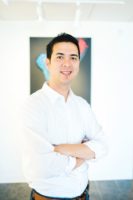 Edward Brown is a writing tutor and piano teacher. He is also an award-winning writer for the Fort Worth Weekly and volunteers for numerous Fort Worth nonprofits.
Edward Brown is a writing tutor and piano teacher. He is also an award-winning writer for the Fort Worth Weekly and volunteers for numerous Fort Worth nonprofits.


 Sign in
Sign in

